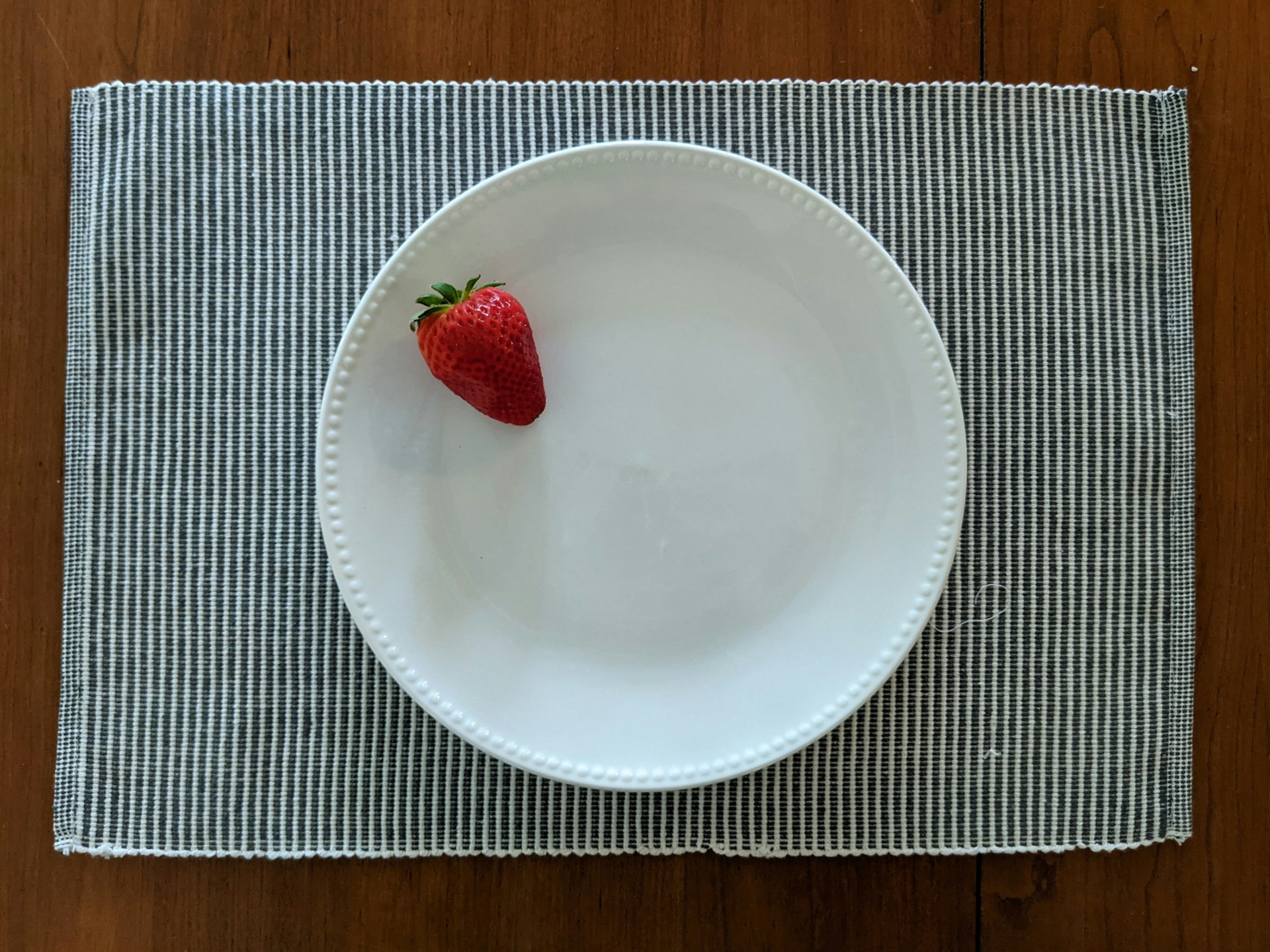If you are dealing with chronic health issues linked to your weight, you may be considering weight loss surgery. Gastric sleeve surgery is the most often performed bariatric surgery, and over 150,000 are done annually in the United States. Gastric sleeve is considered the safest bariatric surgery technique with the lowest risk profile, but like any surgery, it is not free from complications.
Today we are going to go over some of the gastric sleeve complications that you may face if you choose to undergo this surgery. Additionally, we will share information with you about a non-surgical alternative that offers similar results but without the risks of surgery.
{{cta_button}}
Is Gastric Sleeve A High-Risk Surgery?
Gastric sleeve surgery is not generally referred to as high-risk; however, its safety depends on many things, such as the current health, allergies, BMI, and age of the patient, the expertise and experience of the surgeon, the technique used to perform the surgery, and more. Some gastric sleeve complications that can arise during the surgery include:
- An allergic reaction to the sedation used;
- Pneumonia caused by aspiration while under anesthesia;
- Nerve damage;
- Injury to nearby organs;
- Stomach or intestinal perforation.
What Is The Most Common Complication Of The Gastric Sleeve?
The most common complication patients experience after undergoing gastric sleeve surgery is GERD (gastroesophageal reflux disease) or acid reflux. According to Medical News Today, upwards of 40% of patients who have never had an issue before develop acid reflux as a complication of gastric sleeve in the long term. Sometimes, the discomfort of this chronic condition can be alleviated with medication or lifestyle changes, but often patients resort to additional surgery, converting their gastric sleeve to a gastric bypass, to find relief.
Other Gastric Sleeve Complications
Leaks at the Staple Line
During the surgery, a large portion of your stomach is removed, and the remaining section is stapled together to form a sleeve. Sometimes, leaks can occur in the area where the two raw edges of the stomach were stapled together to create the new stomach.The contents of the stomach can begin leaking through the staple line into the abdomen and cause a serious infection. Symptoms of a leak might include severe abdominal pain, fever, and a rapid heart rate, requiring immediate antibiotic treatment and often surgical correction.
Bleeding
Sometimes patients experience minor bleeding that resolves on its own with proper rest; however, cases of excessive bleeding might require blood transfusions or another surgery to stop the bleeding.
Blood Clots
After undergoing any type of surgery, there is a higher risk of developing blood clots, especially in the legs (deep vein thrombosis). If these clots travel to the lungs, they can create a potentially life-threatening condition called pulmonary embolism. To mitigate the risk of this gastric sleeve complication, patients are encouraged to get up and start walking soon after their surgery. In some cases, the doctor may prescribe blood thinners to reduce this risk.
Strictures
A stricture can occur if part of the newly formed stomach sleeve becomes too narrow, making it hard to swallow, or prevents food from passing through the digestive system. Symptoms include nausea, vomiting, and pain after eating. If this occurs, it can usually be treated using an endoscopic procedure that stretches and widens the narrowed area.
Infection
Infections can occur at the locations where the incisions were created or inside the abdominal cavity. Signs of infection often include redness, swelling, and pus at the incision site, as well as fever and abdominal pain. Depending on the severity of the infection, it can usually be treated with antibiotics and proper wound care.
Nutritional Deficiencies
While this is a more common long-term gastric bypass complication, it can sometimes happen to those who have undergone gastric sleeve surgery. Because the stomach size has been significantly reduced, the amount of food that can be consumed is very limited, which can lead to nutritional deficiencies. It is very important that bariatric surgery patients take the vitamin and mineral supplements prescribed by their doctor to prevent further complications like anemia, osteoporosis, and other deficiency-related conditions.
Hernias
A hernia can develop where an incision was made because the strength of the abdominal wall can be compromised. Symptoms can include a noticeable bulge protruding from the area, pain, or discomfort, especially when lifting or bending. Surgery is normally required to repair the weakness and eliminate the hernia.
Gallstones
These are more common after gastric bypass surgery, but each patient is different, and their rate of weight loss can vary. Losing weight very rapidly can lead to the formation of gallstones.
Weight Regain
Many individuals experience this gastric sleeve complication years later and once again seek medical intervention. There are various reasons why an individual would regain the weight they lost after their gastric sleeve surgery. They may have fallen back into their old unhealthy eating habits, developed some kind of underlying medical condition that is interfering with their weight management, or started a new medication that is causing weight gain. In some cases, a can be performed endoscopically to stop further weight gain, or another non-surgical solution can be utilized.
Gastric Sleeve Complications: Long-term
A rare but serious complication that can occur at any time after undergoing gastric sleeve surgery is a . This gastric sleeve complication can occur years later and is considered a medical emergency requiring immediate attention.During gastric sleeve surgery, the size and shape of the patient's stomach are altered, which often removes some of the anchors it previously had holding it in place. Similar to weight-bearing beams in a building, if the wrong ones are removed, the integrity of the structure becomes compromised. If the stomach does not stay properly anchored, it can twist up on itself and cause a serious blockage, which requires surgical correction. This issue is most often related to an inexperienced surgeon.
{{cta_small}}
Avoid Gastric Sleeve Complications With Suture Sculpt ESG
Gastric sleeve surgery is considered safe compared to other surgical options, but that doesn’t mean it is the safest option available. Today, expert doctors like Dr. Steven Batash with Batash Endoscopic Weight Loss Center in NYC offer a non-surgical alternative to the gastric sleeve that has a much lower risk profile but has amazing weight loss potential.
Suture Sculpt endoscopic sleeve gastroplasty (ESG) does not involve incisions or surgery and can significantly reduce the usable capacity without removing any part of the patient’s stomach.
It is conducted from inside by gaining access to the patient’s stomach using an endoscope, which is a medical device that is designed to easily slide down a patient's esophagus to their stomach. This state-of-the-art device is hollow to allow other surgical tools to be passed down it, and it has a tiny onboard camera. This camera streams live video to a monitor next to the doctor so they can perform the procedure with precision.
During Suture Sculpt ESG, the doctor reshapes the stomach into a smaller size and forms it into a long tube-like shape, then uses sutures to hold it together. It is an outpatient procedure that takes less than an hour, and patients are able to return home the same day. The risk of complications is very low because:
- There are no incisions to become infected or cause abdominal abscesses;
- None of the stomach part is cut out and removed, which could cause excessive bleeding;
- Acid reflux is very rare after Suture Sculpt ESG;
- There is no need to stay in the hospital;
- The recovery is usually less than a week;
- Patients do not have any activity restrictions after their procedure;
- The risk profile of Suture Sculpt ESG is less than 2%;
- Offers amazing weight loss potential.
Don’t Risk Gastric Sleeve Complications
There is no need to have invasive surgery or endure a long and painful recovery. If you are willing to make some permanent lifestyle changes, Dr. Batash can provide you with amazing weight loss potential in under an hour. You will finally have the help you need to lose weight and keep it off.
Set up your consultation today with Batash Endoscopic Weight Loss to learn more about Suture Sculpt ESG. Your health will improve, you will have more energy, and you will feel better than you have in years. Contact us now to speak with one of our weight loss experts and get ready to start your journey to look and feel amazing.
{{cta_button}}








